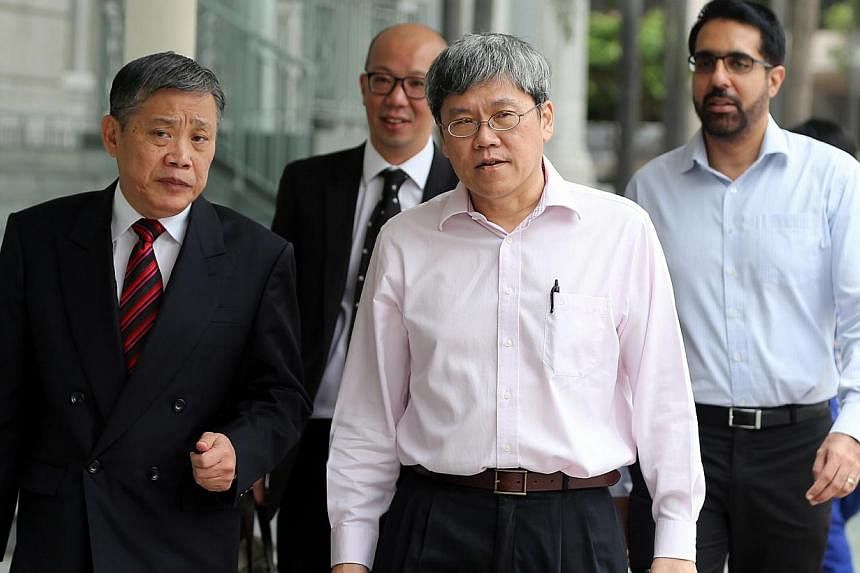SINGAPORE - The Workers' Party-run town council broke the law when it held a Chinese New Year event earlier this year without a permit, a district court ruled on Friday.
District Judge Victor Yeo will pass sentence on Dec 24.
The Aljunied-Hougang-Punggol East Town Council (AHPETC) can be fined up to $1,000 under Section 35 of the Environmental Public Health Act (EPHA), which states that the organisation of "any temporary fair, stage show or other such function or activity" requires a permit.
The town council organised the event from Jan 9 to Jan 30 this year but it was not given a permit by the National Environment Agency (NEA) because its application forms were incomplete.
The town council argued that the event was a "community event" or a "mini-fair" and disputed the NEA's assertions that it was a "trade fair" or a "temporary fair" for which a permit was required.
District Judge Yeo agreed with the NEA.
He found that the defence was "wholly misconceived" in arguing that the event - which had five stalls selling festive decorations, cookies, flowers, assorted fruit and potted plants in a space almost the size of three tennis courts - was a "community event" or "mini-fair" held within a common space that was managed by the town council, and so did not need a permit.
AHPETC's lawyers Peter Low and Terence Tan pointed to Section 18 of the Town Councils Act, which says a town council is to "control, manage, maintain and improve the common property of residential and commercial property in the housing estates".
But District Judge Yeo said the Town Councils Act was enacted for wholly different purposes, and added that these were separate issues with "clearly no conflict" with one another.
The Town Councils Act deals with municipal matters, and was enacted to devolve some of the Housing Board's powers to local constituency leaders, he noted.
"There is nothing to suggest that Section 35 of the EPHA runs counter to, or impinges on, the function, powers and duties vested in a town council" because it was "concerned with the wider environmental and public health concerns which affect the public at large", he said.
District Judge Yeo also agreed with lawyers for the NEA that the Town Councils Act does not "give the town council carte blanche without any regard of requirements of prevailing laws and regulations of the land".
He also disagreed with the town council when it said that it had taken reasonable care not to flout the law.
He noted that it did not, at any point in time, raise its doubts to the NEA over whether a permit was required for their event.
"The true objection in my view appeared to be the conditions stated in the application form and not that a permit was required per se," he said.
The court previously heard that the town council submitted forms such as for fire safety. But it did not get a letter of approval from the area's Citizens Consultative Committee because the town council deemed the requirement "unreasonable".
District Judge Yeo said that it was not appropriate for the court, nor was the case the appropriate forum "to examine the conditions, given that it would not change the issue of non-issuance of a permit".
He added: "For the defence to now vigorously mount a challenge that there is no requirement for the town council to apply for a permit is simply unconvincing to say the least."
AHPETC's two vice-chairmen, Mr Pritam Singh and Mr Png Eng Huat, told reporters after the hearing: "We are disappointed with the verdict but we will consult our lawyers on our legal options and do not rule anything out."
They also said that the WP Members of Parliament are contributing to the lawyers' fees, and that no Town Council funds are being used in connection with the case.
Separately, the NEA, in a statement issued on Friday night, reminded that operators of temporary fairs need a license for such events. This is to address public health concerns and disamenities such as food hygiene, waste management and noise nuisance arising from temporary fairs.
It added that between 2011 and Oct 31 this year, it took action against 16 unlicensed fair operators. These fairs were held at Tampines, Toa Payoh, Simei, Clementi, Kovan City, Bukit Merah, Kampong Glam, Chinatown, Serangoon North, Rivervale Walk and Tanglin Halt.


